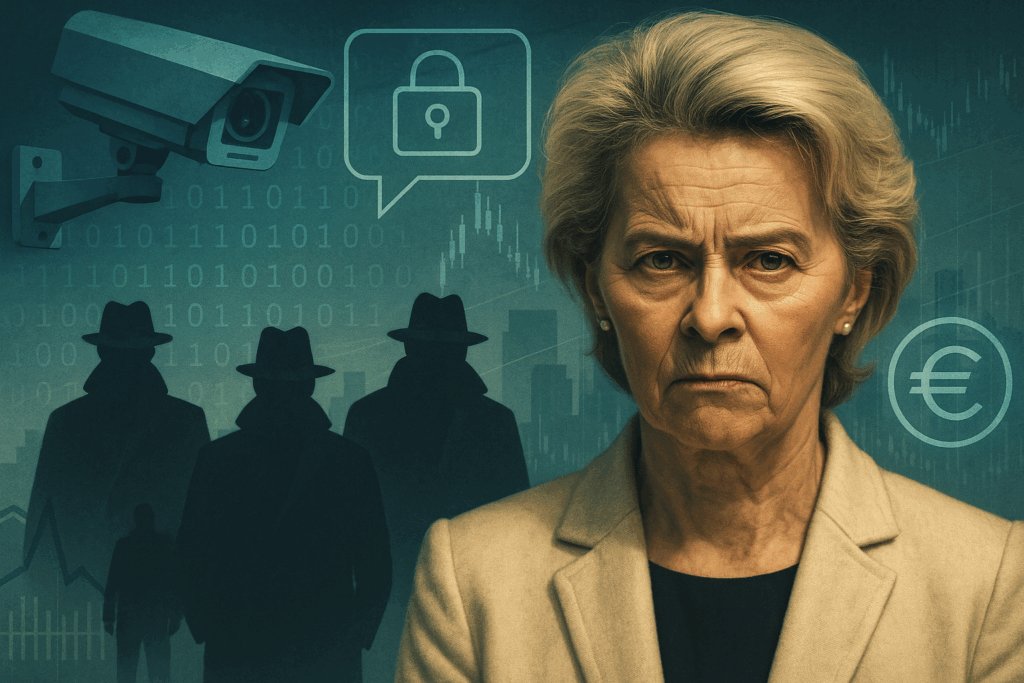Ursula von der Leyen is pushing for an independent EU intelligence service. This move by the Commission President is causing massive concern in Brussels. The political implications are increasing because the initiative is directly linked to growing surveillance measures, such as the digital euro, the controversial monitoring of chats, and the threat to data sovereignty. This mix suggests a model that turns citizens into transparent subjects. The planned intelligence service, which would report directly to the Commission President, creates a structure that facilitates state intervention and could restrict fundamental freedoms. (welt: 15.11.25)
Increased Power Through New Intelligence Structures
Analysis centers already exist within the EU, but von der Leyen is pushing for an additional intelligence agency that will delve deeper into data streams. Officially, the aim is to address geopolitical risks, but the close connection to new surveillance tools is raising concerns. In particular, the planned chat monitoring, which keeps resurfacing despite resistance, is suspected of algorithmically analyzing private communications.

Such controls open the door to technical auditing mechanisms that can easily be expanded later. At the same time, the digital euro creates a payment infrastructure that makes every transaction traceable, thus massively weakening citizens’ data sovereignty.
Expansion of Confidential Powers
The Commission plans to integrate national security experts into the new unit. This will create an information pool that extends far beyond traditional risk management. National services traditionally protect their findings, but political pressure to release data is increasing. The combination of chat monitoring, expanded surveillance powers, and the digital euro creates a situation in which an EU intelligence agency gains far-reaching access. Critics argue that the digital euro is not just a means of payment, but an instrument that makes every financial movement visible. The loss of data sovereignty will not happen suddenly, but gradually.
Parallel Structures as a Pretext
The European External Action Service already operates a central analysis platform, yet the Commission is still building new structures. This creates the impression that the expansion of intelligence capabilities is politically motivated. Surveillance thus moves from being the exception to the rule to a routine instrument. The planned systems are interconnected, appear technocratic, but together they unleash enormous power. From the perspective of many experts, the EU risks creating an architecture that is difficult to control democratically. In this context, the concept of chat monitoring no longer appears as an isolated project, but as a component of a comprehensive control model.
The Citizen as a Completely Transparent Object
The combination of EU intelligence services, the digital euro, surveillance mechanisms, and the creeping erosion of data sovereignty paints a bleak picture of the future. As soon as all areas of life—communication, payments, movement data—can be centrally analyzed, a citizen without a safety net emerges. Those in political power like to talk about security, but security comes at the cost of freedom. This is precisely where the most vehement criticism lies: The EU risks creating a structure that deeply intrudes on private life and undermines fundamental democratic principles. While the digital euro enhances technical efficiency, it simultaneously opens the door to seamless traceability.
Whether the plan fails or reality prevails depends on political decisions. However, the debate reveals that the EU stands at a threshold. This threshold separates a free and democratic order from a system in which control is effortless—and hardly anyone recognizes when the line has been crossed.
